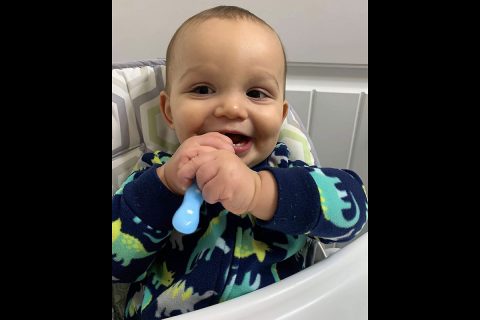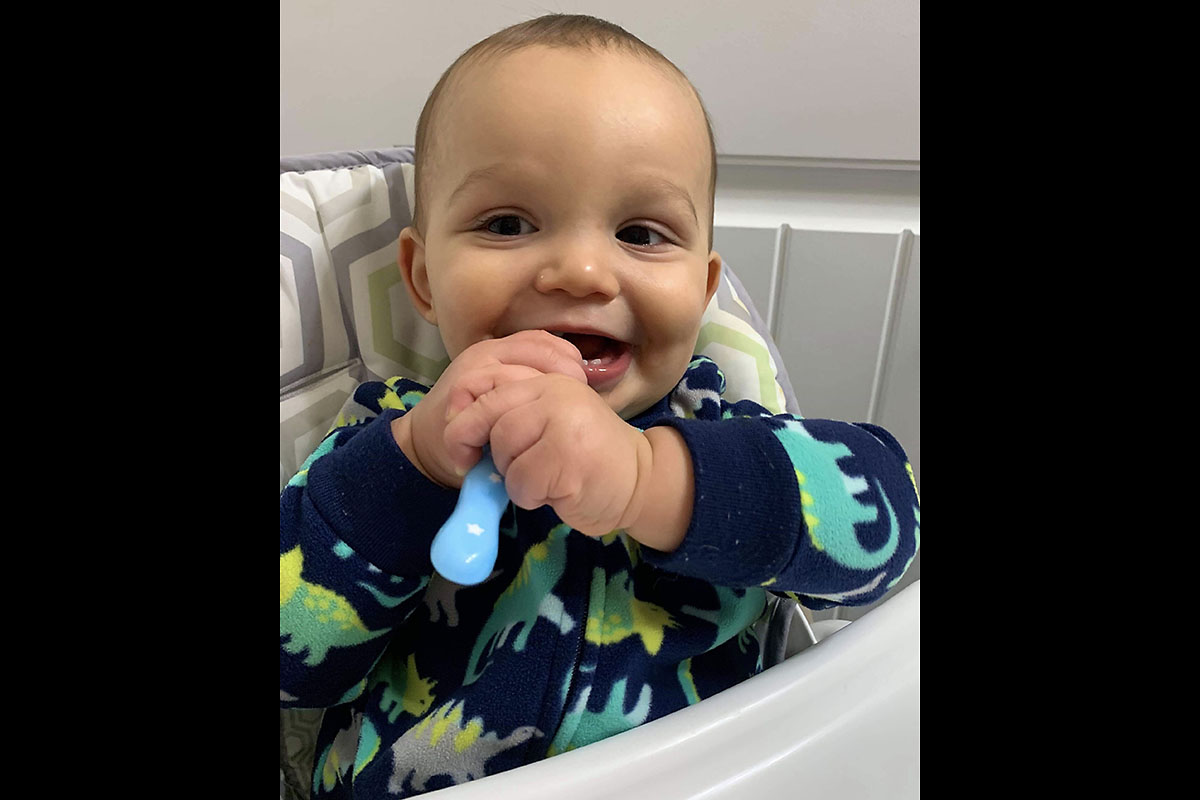 Fort Campbell, KY – Establishing good oral hygiene habits in children early can set them on a course for good dental health for life, explained one Fort Campbell-based dentist.
Fort Campbell, KY – Establishing good oral hygiene habits in children early can set them on a course for good dental health for life, explained one Fort Campbell-based dentist.
“Parents should start practicing dental care as soon as the first tooth pops into the mouth,” explained U.S. Army Dentist Capt. Katherine McCabe, assigned to Fort Campbell’s Taylor Dental Clinic. For infants, McCabe recommends using only water and a soft-bristled toothbrush or fingerbrush that is worn on an adult’s finger. Toothpaste is not typically recommended for children under two years old.

McCabe said starting early will reduce bacteria that can harm teeth and will help children get accustomed to dental care.
“You can actually start to gently massage the tooth and gums just to get the child used to having their teeth brushed,” said McCabe. “When they actually get all their teeth and see the dentist, they’ll be used to people looking in their mouth and be more comfortable with it.”
Children should start seeing the dentist when they are one year old. The dentist can look and make sure their teeth are coming in properly and identify any problems early.
“Some people don’t like going to the dentist, but if you start them young, showing them that this is what you do to maintain your health, and make sure you have a pretty smile and keep your teeth white, they’ll be more used to getting in the dental chair to sit, and they’ll leave with a better experience,” said McCabe.

In general, dentists recommend children brush their teeth twice a day. In the morning, when they wake up and before they go to bed, for two minutes. Parents or caregivers should brush their baby’s teeth twice a day.
“When you think about it, you’re eating all throughout the day and all that food is stuck on your teeth all night long if you don’t brush until morning. So make sure you are brushing at night to remove the food debris before your head hits the pillow,” said the dentist.
McCabe recommends just a little tiny smear of toothpaste for children ages two and three years old and a pea size amount for children ages four-to-six years old. Older children can use a normal amount of toothpaste.
“Children or parents should brush for two minutes with a fluoride toothpaste and if they can spit, a fluoride mouth rinse,” explained McCabe. “Setting a 2-minute timer for your kids is a good way to make sure they are brushing for the correct amount of time.”
McCabe also stressed the importance of flossing.
“Getting kids in the habit of flossing is beneficial for them, especially when all of their permanent teeth come in. Flossing once a day, usually at night is the best, just to make sure none of that food is stuck in between the teeth. If it is staying in between the teeth and they are sleeping all night long, it’s just going to cause cavities to progress more,” McCabe said.
Cavities are preventable with good dental care. In addition to twice daily brushing, and once daily flossing and rinsing, families should visit their dentist for regular check-ups.
Eligible military family members can find a dentist through the TRICARE Dental Program. The program is an enrollment-based voluntary dental plan for family members of active-duty service members.
To learn more about the TRICARE Dental Program and covered benefits visit www.tricare.mil/coveredservices/dental/tdp



